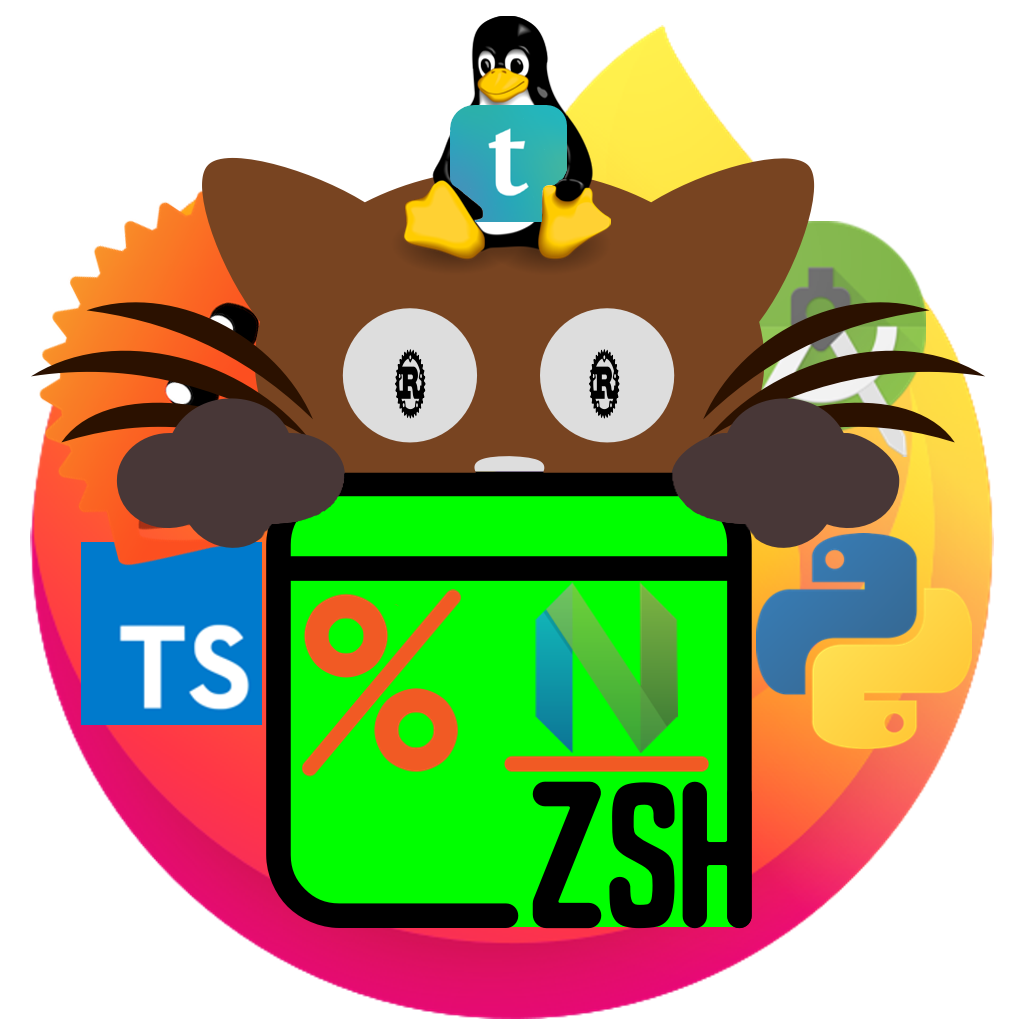
People who say PHP is shit haven’t really used it and are just repeating the memes. It’s a perfectly fine language and there are a number of excellent tools and frameworks for it. It’s reputation is a result of it’s easy entry and widespread use. A whole lot of people who knew just enough to be dangerous made a whole lot of stuff, and it ended up causing a whole lot of problems. But for some reason devs shit on the language instead of shitting on the devs who put them in a mess.

Nah, it’s historically been a special kind of shit. It started life as a Perl templating engine, then grew out to its own language where it repeated all of Perl’s mistakes while adding more of its own. Its community was single-handedly responsible for keeping SQL injection attacks in the OWASP Top 10 list for years. Notice that it’s now bundled with “injection attacks” as a generic label for a wider range of similar issues–SQL injection alone would no longer warrant being there. Its conflation of arrays and hash maps meant it took years to wrestle with algorithmic complexity attacks. Perl kept the two separate, and was able to get a patch out for algorithmic complexity almost immediately (though it turned out to have a few bugs of its own, and a true fix came in a few years later; still faster than PHP solved it).
The web from 1998 through 2010 or so was absolutely riddled with bad PHP programs. “But that’s not the language’s fault”, you say? Doesn’t matter. Community is an important and underappreciated feature of a language, and PHP had a special kind of shit community. It almost seemed designed to suck away the dross from all other communities.
Consider the plugin system for phpBB:
- Its architecture doesn’t have any kind of hook system for plugins; they’re added by patching the code in place
- This naturally leads to different plugins interfering with each other
- Having done that, you might choose one of the patch formats already out there, but phpBB decide to create their own
- There are, at first, no tools available to automatically patch in plugins, so administrators (often not developers themselves) need to hand edit the source files and modify the database (the plugin format specifies both together)
- Tools start to emerge over the years to handle it automatically, but they’re buggy and unusable for a long time
Is it PHP’s fault that one major application was implemented so poorly? YES! Its community is a feature, and its community is what brought us to this.
You want to claim that the language has done better since PHP7? Alright, that’s fine. I still don’t care. There are so many better options available, and I don’t have time to keep up with all of them. I’m happy relegating PHP to being a long-tail language where it trails off slowly over the years like COBOL.

I’d say that PHP allows you to write very bad code (and makes that the default). It’s a language feature.
For example Java has a lot of NullPointerException because it was designed with null and without mechanisms to detect & prevent these errors. Any method can return null and cause a NPE. It’s just easy to ignore them. Modern languages like Go, Rust or Zig force you to handle null errors, and make it easy to do so. NPEs are a lasguage feature in Java.
In the same way PHP allows you to write any ugly code you want. There are no checks, no safety. People can write bad code, people can be lazy, people can be stupid. PHP allows it and empowers them.

Exactly. I used PHP for years, I haven’t “not used it.” It was the first programming language I seriously learned. Writing good code was tedious if not impossible and that became even more obvious as I expanded to C#, Java, Python and C++; none of which tolerated any of the bad and unconventional practices I’d inevitably picked up. Keep in mind, I was actively trying to avoid bad practices and pay close attention to types but still got kicked to the curb hard when I tried other languages. I haven’t had that since.
I appreciate it’s changed since, I’m happy to see it’s not the same dumpster fire it once was, I also don’t care. I don’t actively trash it, I just think there’s usually a better option.

The only language people don’t shit on are the ones nobody uses.

I want to shit on Apache Pig Latin, but nobody uses it…

I used PHP for the past year. And honestly I still think it is not a good language. Just of the top of my head.
-
By far the biggest culprit. Arrays. This monstrosity is basically everything. Yes, it is fast but it only teaches bad habits. It is a weird combination of Arrays/Lists/(Dictionary/Hashmap) and you can’t know which one it currently is because there are 0 compile time safety checks. Also when used as a parameter it is passing a full copy instead. But the copy of course is only shallow. I have seen so many problems with that. And even worse when someone thinks the way to fix it, is to just json encode/decode the whole thing in order to get a deep copy before passing it.
-
Generics. I still don’t get why this is such a huge issue. Like I would rather have a half-baked optional compile time implementation then none at all. The worst part is that IDE tools support generics so you end up inplementing them on the comment level. I shouldn’t be forced to use generics through comments.
-
$ for variables. I know that this is just based on how the language grew. But god do I hate having to type it. It is not an easy to reach letter and just breaks my typing flow the whole time. You get used to it but still.
4 . The default functions. Yes. You will mostly use framework provided functions or your own stuff. But you still end up in contact with them and the naming schemes are still all over the place, so it is fast to just google it then hope you accidentally stumble upon it through the IDE. And some things are still straight up missing. Like the best way to deep copy an array is json_encode into json_decode. When I saw this the first time I was sure that must be wrong. But no. That is legit the way to do it.
Also I am stuck with PHP7 so some of my other complains seemed to be fixed in later versions. Also please don’t recommend DS for my first issue. I tried to push for it but it got vetoed because “it is too complicated for new devs”.

The answer for the deep copy would seem to be a combination of a static recursive function to copy the array while cloning the objects inside, with setting the __clone() magic function in your objects to break the references, no? Granted it’s not a built in function, but not difficult to implement.

Arrays are passed by copy by default. Every scalar or array value is copied by value. Every other thing (objects basically) is copied by reference.
Passing array by reference passes everything it used to copy by reference.
Attempting to clone an array will result in an error.
Reassignment of a variable containing an array will do the same as if passed to a function by value.
Reassignment of a variable containing an array using the reference operator will do the same as if passed to a function by reference.
So, in order to deep copy an array, just reassign and recursively traverse the array calling
cloneon each object. Of course, this would break (or not, depending on the intended use) when the same object is referenced multiple times under different keys.
Sorry for being lazy so no sources for now. But based on my research back then. Using clone (on arrays) is actually slower then json_encode/json_decode.
So there are some cool optimization tricks going on in the background. But that doesn’t make it any more intuitive for me.
-

I used to think that php was a bad language until recently (used php5 when i was just learning to program, cooked some delicious spaghetti). But after 5 years I had to use PHP at work. The language has improved a lot, but I think a lot of the bad parts are still there.
Like, why does stdclass exist? Why not just use associative arrays? Why are there warning, error, fatal errors, exceptions? Some functions throw exceptions, other raise errors, others return false, other fail silently and you have to call another function to check if there was an error (
last_json_error). Why do find functions returnfalseinstead of-1? Like every other language? Why can’t I use strings with numeric values as maps keys? (I can’t have["001" => value], it gets casted to["1" => value].There are no generics, you have to use
mixedeverywhere. The stdlib is an inconsistent mess, some_snake_case, someCamelCase, verb_noun, noun_verb, functions are not namespaced, everything is global. A lot of duplicates: die vs exit, print vs echo, etc. You are forced to use PSR & autoload to be able to use namespaces in a tolerable way, not including_once everywhere. No UTF-8 support, only ascii. You have to manually use mb_ functions. Variable scoping is weird. Variable variables? Why?And all that is just comparing it to the average language. If compared to a modern language like Rust, Zig, Swift, php is light years behind.
It’s not hot garbage, but I wouldn’t call it “good”. There’s laravel, but not much more. PHP still makes you shoot yourself in the foot by default, unless you spend a lot of time learning its edge cases. Just like javascript.

It has also improved a lot in the last years. PHP5 and especially versions older than that weren’t very good and deserved a lot of the criticism. PHP7 and onward are much better languages and don’t deserve the hate.

I worked a lot with PHP3 and 4, they work by the “Here is a flat C style API and here’s all the functions to use.” principle, and a lot of the work was finding the needed function, and how to use it.
I know PHP5 did a lot of redesign especially with classes, but have never used it, hope PHP5+ feels more like Pythons toolbox.
If I should write a web application today, I would start looking at Python based frameworks: Django (I have used it before)/Flask/Etc. as I am not sure I would like to work with JavaScript, or have to re-learn PHP.

A fun story about the origin of some of PHP’s first function names. The hash function in the table for function names in the interpreter was strlen(), so names were chosen to have a wide distribution of lengths.
(source)

A fun story about the origin of some of PHP’s first function names. The hash function in the table for function names in the interpreter was strlen(), so names were chosen to have a wide distribution of lengths.
(source)

I think the worst thing about PHP is all the ancient tutorials that litter the web like landmines. SQL injections everywhere.
And there’s way too many low-budget wannabe web developers who know just enough to blow their own feet off. Or more likely whoever paid for its feet, because that web dev will be nowhere to be seen a week after handing it over.

My issue with PHP isn’t the language, it’s the developers. PHP developer culture is much like C# and Java culture.
I could bring a million reasons I don’t want to program in PHP and every time we talk about it, the PHP developer tells me I should be using it for everything. If I suggest that it may not be the best tool for a particular task at hand, the PHP developer tells me it’s the only language they know so they will use PHP.
The issue is that this type of culture closes doors mentally. In any craft, we should try to use the best tool available for the task at hand. In carpentry you’d use a hammer with nails and a screwdriver with screws. In programming, there are times using PHP makes sense and times it doesn’t.
In container based services, I tend to lean toward a compiled binary because it reduces the size of the container at run time and most modern languages don’t require tons of heavy duty frameworks to scale well there.
In a monolith, a fully interpreted language with an MVC framework could make sense.

I’ll never understand devs that go “I don’t know that language”. PHP is one of the only languages used in production I don’t know. I have read examples and it looks like you bastardized a Java/c# clone with bash or a string templating language, which isn’t very appealing. But like, if I had to learn it, I’d do so in a month, functionally writing it in a week tops. Learning languages is part of the job, and they all add something to your understanding of paradigms.

I think we need to keep in mind that a programming language isn’t learned in a day whereas the use of most tools can be learnt within minutes, albeit not perfected of course.
The hurdle to learn a new language is higher and also there is only so many langauges you can be fluent in at the same time, until you start mixing stuff up and causing more problems for yourself than being proficient in just a few languages.

It’s fine to not know every language. I’m not saying you must know every language. I’m saying that only knowing one and refusing to use another is a problem I’ve seen from PHP, Java, and C# cultures almost exclusively.
The only exception I’d say that makes sense is people who are using coding for a small part of their overall job. But full time software engineers should have at least a few options in their belt for backend that they understand and can use in different scenarios.

It’s also funny how they mention languages and frameworks, but php is just php. No symphony or whatever people use now, php. And somehow people whlent from using frameworks in python to not using them? It makes little sense.

One could argue that people who say PHP is fine only suffer Stockholm syndrome !

There are two kind of programming languages:
- The ones everyone complaints about
- The ones nobody uses.

PHP isn’t dead. It’s just smelled that way for decades.

This is an irritating meme.
Were people saying PHP was dead in 1995, the year it was released? I guess maybe?
But who was suggesting abandoning PHP for Django in 2003, two years before the latter was publicly released? I suppose the person who made this must’ve read that Django development started in 2003 and gone with that; most of these years correspond with when the respective project started.
So, the reason Perl (which remained more popular for web development than PHP or any of these things into the early 2000s) isn’t on the list must be because it actually predates PHP.
But then what is up with Python in 2022?

I also appreciate that you’re supposed to learn Django 19 years before you learn Python.

Flask too

Yeah, plus PHP was very popular circa 2011-2016 and laravel was loved by many around that time and beyond. It’s always been a useful language.



https://w3techs.com/technologies/overview/programming_language
On the server-side PHP is used by 76.8% of all websites (a large chunk of that being WordPress). It is not going anywhere, soon. Looking at this statistics, nothing else seems to be even in the same league from a pure usage point of view.
I have yet to see a reason why it should change. Serious question: What is the disadvantage of using the tried and tested PHP8 compared to the alternatives, if you already know PHP?

Serious Answer: PHP in itself is not that bad, despite some discussable decisions in function naming and arguments order to name a few. The biggest problem, is that it has a settings file describing how it works (php.ini) and that sh*t will bite you in the rear when you move apps from server to server, where all the libs are different etc… PHP never works out of the box when moving something on a new server, that is the worst part of the language.

I’m sure there are a lot of reasons why PHP is better than Python for the backend, but I created an app wirh Symfony 5 and then an app with Django 4.
Symfony is so weird compared to Django. With Django I can just sit down and get things done. Symfony always seems to have some quirks which are mostly due to PHP (and me not knowing how to program in PHP).
That said, PHP hosting is so much easier and cheaper, this probably is important for smaller projects.

Django is pretty nice, yeah. We also have good compiled webapps, with go and rust. Gitea for example uses go.

You don’t need a framework for PHP. That’s the beauty of it, you don’t need anything. You cannot build a website with Python without a framework.

You don’t need a framework for either, but it makes working with both much easier!

Isn’t all hosting containerized at this point? Is hosted, language specific servers still a thing?
I’ve been out of the market for a while now and just run everything as containers on aws and gcp

Isn’t all hosting containerized at this point?
No. Not even close.

Many older projects don’t get migrated to containerized infrastructure and smaller businesses don’t want the overhead it creates to run a single app/webpage. Plain LAMP with FTP access is still the most common way to host I think (and thus the cheapest if you consider the amount of work that would need to be invested to containerize).

Interesting. I never really realized how it was more my path changing than the entire industry.

The industry is surely changing, but “the industry” is mostly geared towards enterprise, because it’s where the money is. But the large amount of webpages are not enterprise pages but personal blogs, small businesses etc.

2023 is the year qbasic comes back i can feel it

Symfony, Laravel & other PHP based frameworks are going strong. PHP isn’t going away anytime soon.

What is dead may never die

Yeah, I’m still amazed as well… not only that, but people still use it 😬.

You’re obviously not any sort of developer, so I suppose we can forgive your ignorance

Learn rails in 2004? Good luck. It wasn’t released until 2006

This says it was released at the end of 2004
https://rubyonrails.org/2005/12/13/rails-1-0-party-like-its-one-oh-oh

Who is PHP?

PHP is a shit language, but far from dead. There are too many legacy killer apps that are used A LOT and won’t be rewritten in a different language anytime soon. E.g. Wordpress, Mediawiki (The engine behind wikipedia and other wikis), Nextcloud, Typo3, …

Yowch, Django was 20 years ago? That hurts.

It shouldn’t hurt at all IMO
It’s still a very mature framework, works with client side apps via DRF if that’s your thing, and has only gotten more quality of life improvements.
There’s things to be desired especially with async but IMO old != bad
Also the last one is “learn python” which… Django is python…

